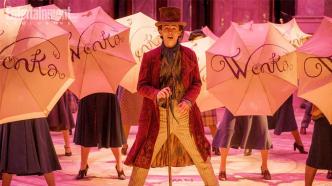
In terms of movie-watching experience, "Wonka" is a movie that is getting better.
As a fantasy feature film with a large proportion of song and dance music, the male protagonist Wonka, played by Timothée Chalamet in "Wonka", has an obviously loud voice in the first song he debuts. Tight and jerky, the dance also revealed stiffness and unnaturalness. But as the film's narrative progresses, "Sweet Tea" begins to perform smoothly and skillfully on the big screen, and the other characters who appear one after another gradually show their due performance standards.
"Wonka" has a smooth plot line and exquisite costumes. The story's ups and downs are integrated in one go. It also provides sufficient special effects scenes and fantasy atmosphere that the audience expects. As the first imported live-action blockbuster introduced during the Lunar New Year period, the "sweetness" of "Wonka" is qualified.
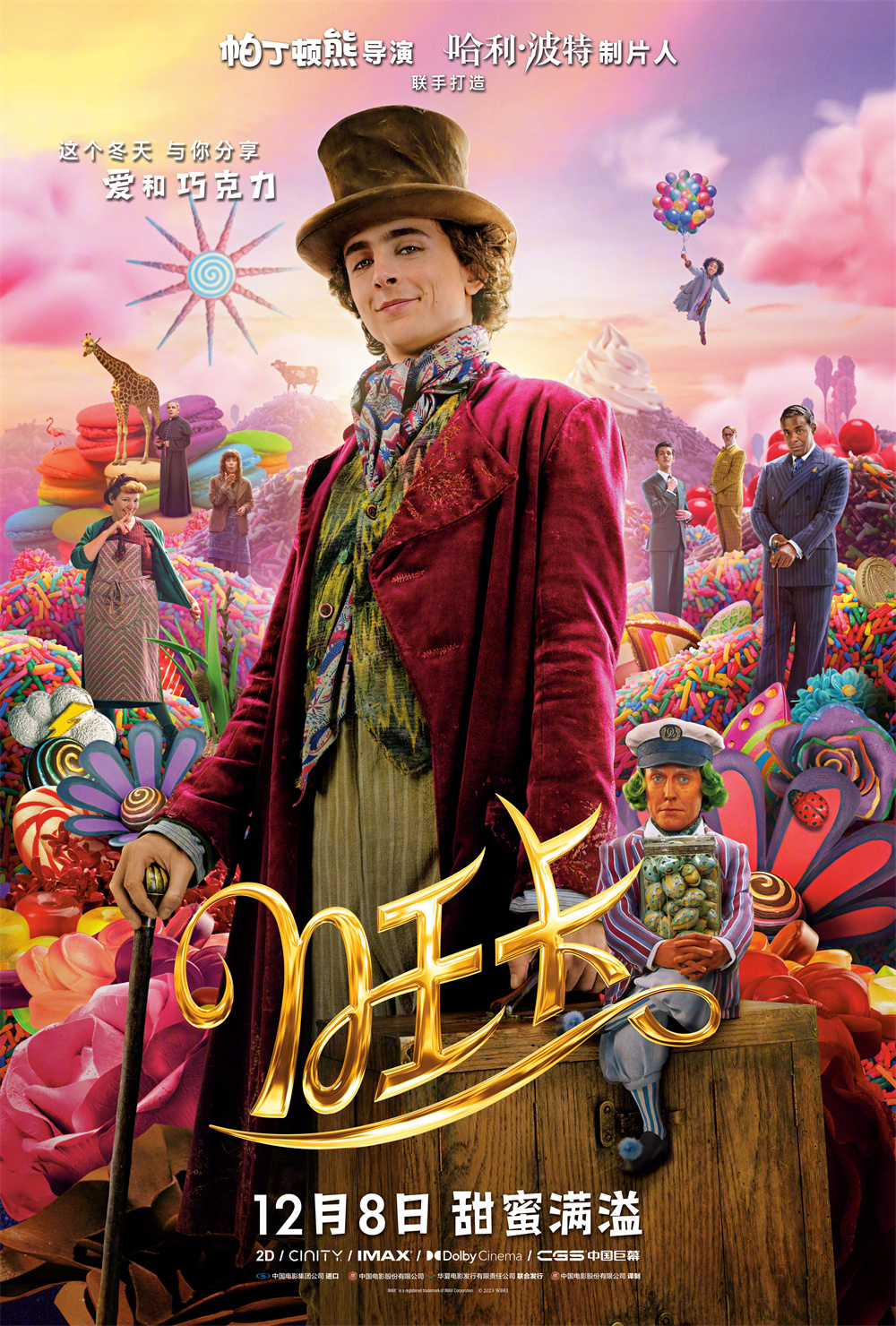
"Wonka" poster, Wonka played by "Sweet Tea" Timothée Chalamet is the absolute protagonist of the film.
However, the market performance of "Wonka" is still "misfire". In addition to film scheduling factors, it is more likely that although the film is as smooth as chocolate, it lacks a sense of layering. Of course, the taste of truly first-class chocolate cannot be just sweet. It needs to be bitter and sweet, and bitter and then sweet.
Although the story formula of "Wonka" also intentionally pays homage to Roald Dahl, the original author of "Charlie and the Chocolate Factory", and draws nutrients from 19th-century British literary works (especially Dickens), it is still too naive. Unlike "Silly Bai Tian", it lacks the depth and thickness to become a first-class movie. "Wonka" fails to arouse a strong willingness to discuss the audience - whether it is a good or bad review - this is the most embarrassing situation faced by this movie.
As a "prequel" film to "Charlie and the Chocolate Factory", "Wonka" actually only borrows the character's name and occupation. There is no ready-made original text to rely on, and it is not in the same worldview as "Charlie and the Chocolate Factory" The setting and character settings maintain a consistent consistency and should be regarded more as a "fan" movie.
The gloomy and gothic atmosphere of "Charlie and the Chocolate Factory" is missing in "Wonka"; Johnny Depp, who plays Charlie in "Charlie and the Chocolate Factory", is neurotic and has a fragile and crazy temperament. It is incompatible with the optimistic actor portrayed by "Sweet Tea" in "Wonka". The character of Wonka in "Wonka" is closer to Paddington in the "Paddington Bear" series, who is voiced by Ben Whishaw - not surprising, the director and screenwriter of "Wonka" One of them, Paul King, is also the director of the "Paddington" series. Therefore, "Wonka" reflects more the creative intention of the "Paddington" series than that of Tim Burton (director of the film "Charlie and the Chocolate Factory"), Johnny Depp, or Rolle De Dahl's creative intentions.
"Wonka" is certainly not a superficial juvenile film. The film is obviously based on nineteenth-century Britain as the era and social background. In addition to Wonka's incredible chocolate-making skills, and the fictional "dwarf" tribe of Oparumpa people, which are common recipes in fantasy stories, the black-hearted landlady in the movie, the three chocolate villains who exist as trusts, The confused priest in the church (played by Mr. "Bean" Rowan Atkinson in a surprise cameo) and the police sergeant who acts as a protective umbrella are obviously real people in the chaotic British social background of the 19th century. The nineteenth century was the golden period for the development of British realist literature, and it is not difficult for "Wonka" to draw material from it. In addition to the fantasy plot, the film has a very real social texture.
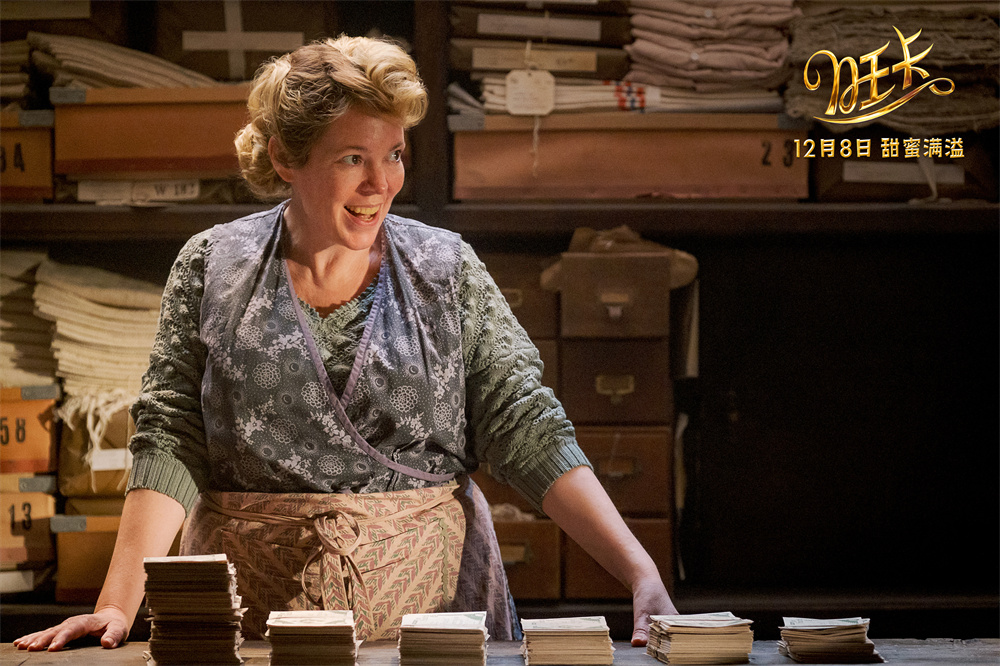
Oscar-winning actress Olivia Colman plays the greedy and sinister landlady in the movie.
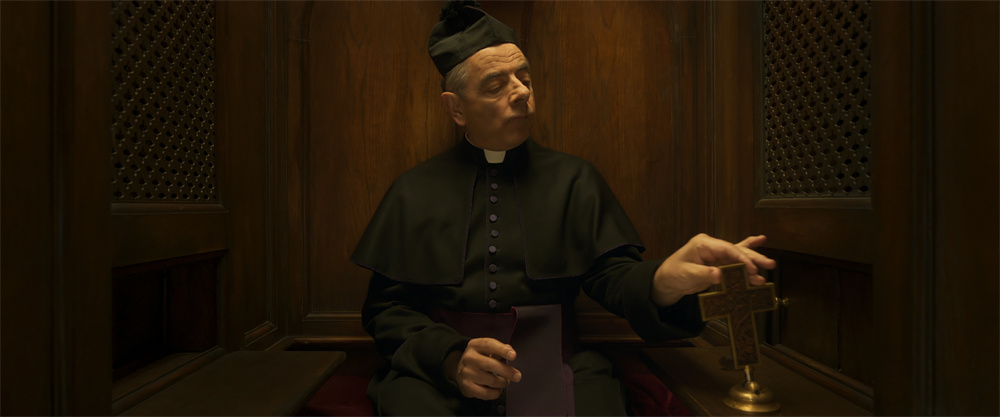
Mr. Bean, who made a surprise cameo, also performed well in the film.
The original plot in "Wonka" obviously has the shadow of Dickens's "Oliver Twist" and "David Copperfield". The life story of the heroine "Little Noodles" is obviously borrowed from the life story of Oliver Twist in "Oliver Twist"; Wonka's laundry employees who were forced to sign "prostitution contracts" like him are also related to Oliver Twist, like David Copperfield's friends, was a kind-hearted member of the lower classes of all religions. As for the villains in the film, it is not difficult to find typical sources in many Dickens novels. "Oliver Twist" may be one of Dickens's most famous works, but it is by no means the most mature work in terms of artistic achievement, and "Wonka" did not further condense and sublimate the nutrients it drew from literary works. The role of "Little Noodles" is essentially dispensable in the film. It is just an assistant on the protagonist's "upgrade" journey.
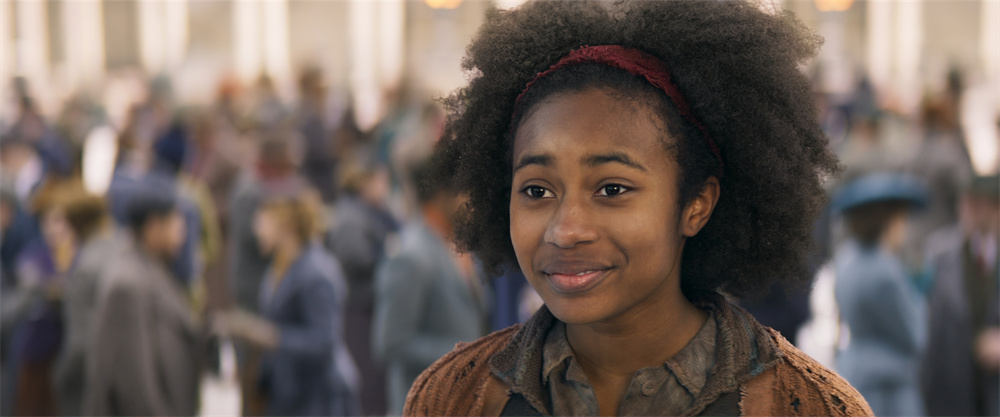
The life experience of the heroine "Little Noodles" is exactly the same as that of Oliver Twist.
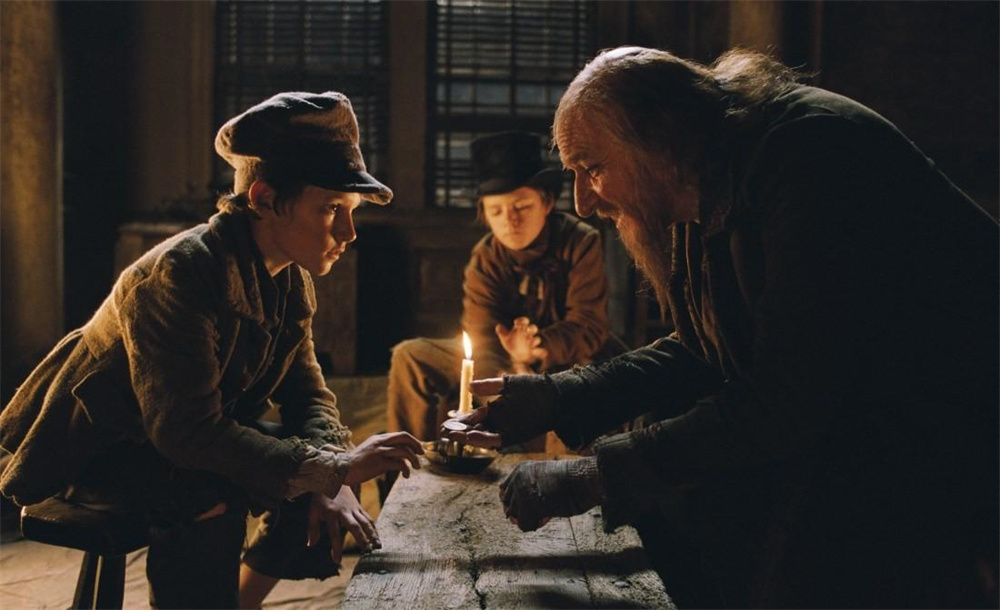
"Oliver Twist" (2005 version) has been adapted to the stage and screen many times, proving the work's lasting vitality.
Compared with "La La Land" and "The Greatest Showman", two of the most successful music and dance movies in the past decade, "Wonka" is too "child-oriented". Compared with fantasy movies that are also based on British fantasy literature, such as "Alice in Wonderland" and "The Chronicles of Narnia", "Wonka" is not fantasy enough. The unfair competition methods used by the Chocolate Trust, as the villain in the movie, seem trivial compared with real business wars. Some of the most romantic passages in the film, with singing and dancing, make the audience feel relaxed and happy, but it is inevitable that they will feel like they have seen each other before. "Wonka" lacks unique plot passages that make the audience unforgettable.
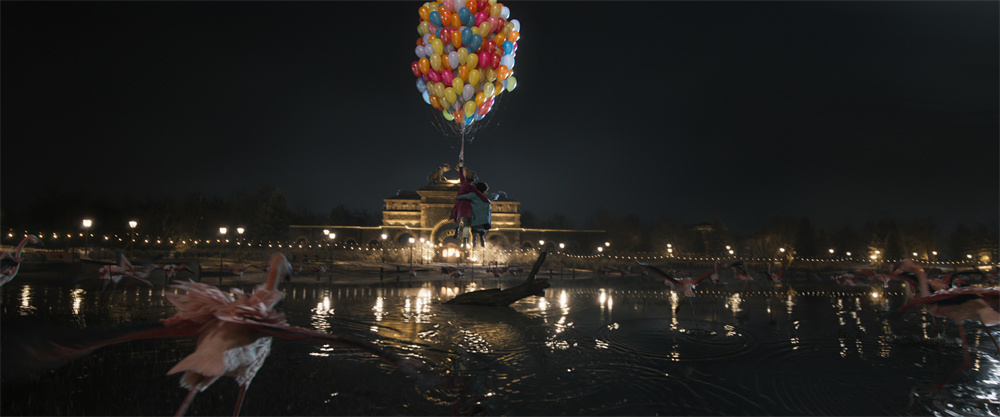
The romantic passages in the movie have shadows from classic films such as "Up" and "Singin' in the Rain".
The success of musicals is inseparable from charming singing and dancing stars. "La La Land" and "The Greatest Showman" are both star-studded, shining so brightly that the audience can't open their eyes. "Wonka" is played by "Sweet Tea" alone, and although the performance is brilliant, it is a bit weak. On the contrary, the former British lover Hugh Grant has once again subverted his image and "soy sauce". He is more generous and has more fun than in "Paddington 2". The song and dance performance of Hugh Grant's brainwashing is the most worth revisiting cut in this film.
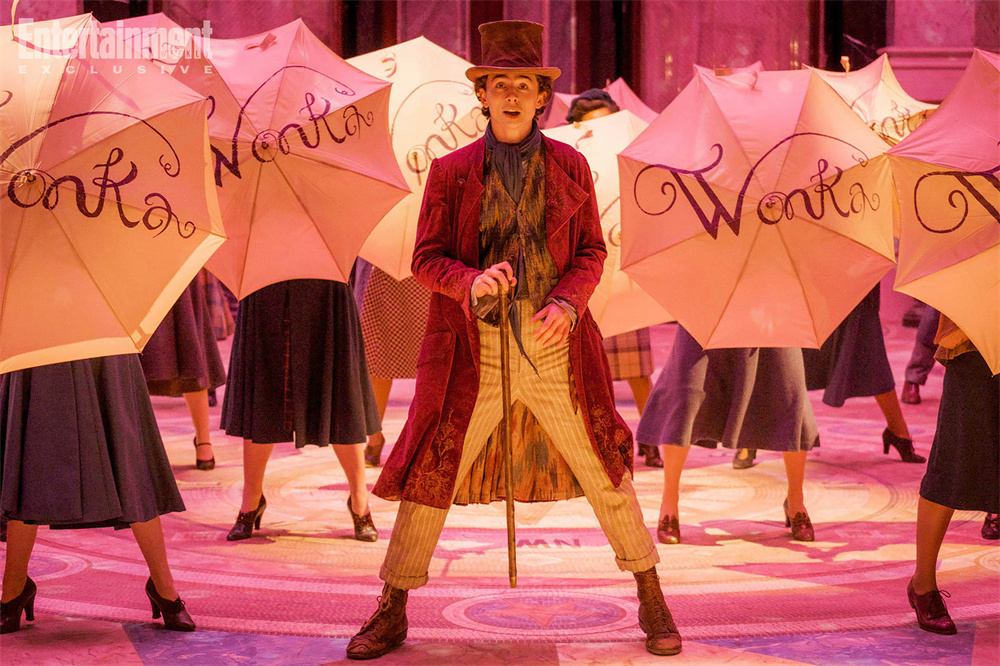
"Sweet Tea" has a lot of great singing and dancing performances in the movie
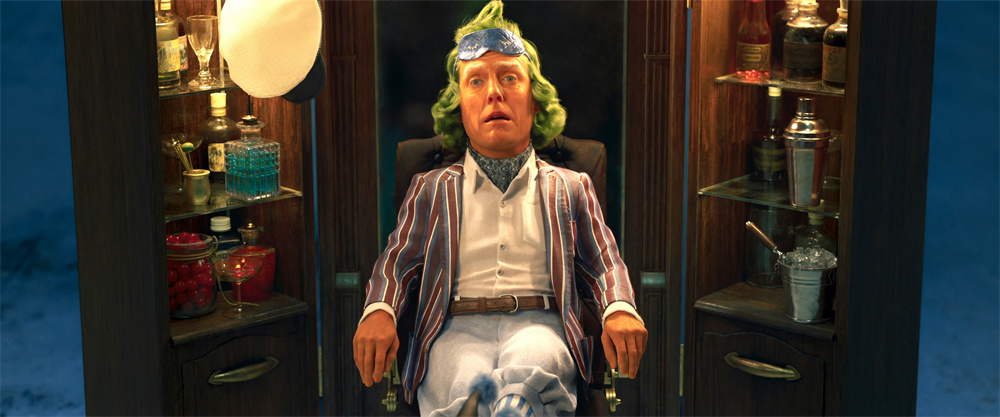
Hugh Grant subverts his image once again, starring in the comic role of Opalumpa.
In the winter of 1843, Dickens wrote the novella "A Christmas Carol" in less than six weeks. This work downplays the bleak social background in "Oliver Twist", "Great Expectations" and "A Tale of Two Cities", and fully emphasizes the optimistic and good atmosphere, becoming Dickens's most popular novella among readers. If Dickens also loved chocolate, Wonka in "Wonka" would surely be his favorite character: optimistic, enterprising, friendly, and tenacious. "Wonka" didn't contribute any amazing pop hits, nor did it provide any issues that could be discussed in depth, but for a movie that strives to make the audience "sweet", it's hard to be too demanding. So, go into the theater with a relaxed mind and remember to bring some chocolate.


